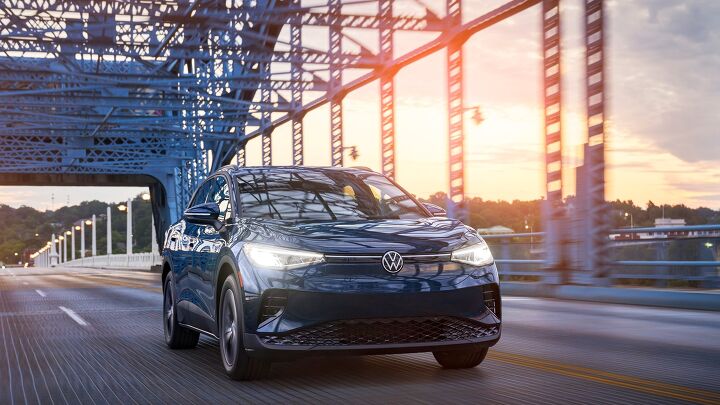Charging an EV is Still Too Hard, Even in Places Where It Shouldn't Be

Though we’re a little past the early adopter phase of electric vehicles, owners still face challenges that gas vehicles don’t have. Scott Case, a Seattle, Washington-based EV owner, recently took to LinkedIn to outline his charging horror story.
Case is the co-founder and CEO of Recurrent, a used EV buying and selling platform. His experience included trying several chargers, calling tech support, and unattended vehicles with completed charge cycles. Case’s Volkswagen ID.4 needed a few charging stops to get him and his family home to Seattle, and it appears that none of his visits went smoothly. The worst part of the story is that this all took place in the Pacific Northwest, a region that fosters and engages with new technologies well ahead of most of the country.
Though it’s challenging to make a news story out of one person’s experience, I’m familiar with Case’s woes as an occasional EV tester here in New England. Even in and near Boston, home to MIT, Harvard, and millions of brilliant people, the EV charging scene is blindingly frustrating. On a recent trip from midcoast Maine to an event south of Boston, I had to stop four times to find one working charger. Units labeled with 350kW charging speeds rarely exceeded 150kW, and there were at least a half-dozen fully-charged cars parked in precious charging spots.
Case calls on Electrify America to do better, but the whole country has quite a long way to go before we’re ready for full electrification. Billions of dollars are on the way to improve charging infrastructure, though, and even Tesla is helping by opening part of its Supercharger network. So while things won’t get better overnight, it will be a lot easier to charge EVs in the coming years.
[Image: Volkswagen]
Become a TTAC insider. Get the latest news, features, TTAC takes, and everything else that gets to the truth about cars first by subscribing to our newsletter.

Chris grew up in, under, and around cars, but took the long way around to becoming an automotive writer. After a career in technology consulting and a trip through business school, Chris began writing about the automotive industry as a way to reconnect with his passion and get behind the wheel of a new car every week. He focuses on taking complex industry stories and making them digestible by any reader. Just don’t expect him to stay away from high-mileage Porsches.
More by Chris Teague
Latest Car Reviews
Read moreLatest Product Reviews
Read moreRecent Comments
- MaintenanceCosts If only it had a hatch. The Model S is so much more practical, has similar performance in non-Plaid form, and is $20k more - and the $20k premium seems almost worth it just for the hatch.
- Lorenzo I'm not surprised. They needed to drop the "four-door coupe", or as I call it, the Dove soap bar shape, and put a formal flat roof over the rear seats, to call it a sedan. The Legacy hasn't had decent back seat headroom since the 1990s, except for the wagons. Nobody wants to drive with granny in the front passenger seat!
- Analoggrotto GM is probably reinventing it as their next electric.
- Vatchy What is the difference between a car dealer and a drug dealer? Not much - you can end up dead using what they sell you. The real difference is that one is legal and one is not.
- Theflyersfan Pros: Stick shift, turbo wagonExtra tires and wheelsBody is in decent shape (although picture shows a little rust)Interior is in decent shapeService records so can see if big $$$ is coming upCan handle brutal "roads" in Uganda, Rwanda, and Tanzania, although the spare wheels and tires will be needed. (See picture)Cons:Mileage is high Other Volvos on the site are going for less moneyAnyone's guess what an Ontario-driven in the winter vehicle looks like on the lift.Why wasn't the interior cleaned?Clear the stability control message please...Of course it needs to cross the border if it comes down here. She lowers the price a bit and this could be a diamond in the rough. It isn't brown and doesn't have a diesel, but this checks most TTAC wagon buyer boxes!


































Comments
Join the conversation
Most of the comments seem to validate the view that unless you want an extra $50,000 vehicle sitting in your driveway depreciating most of the time, EVs are not practical.
If all you do is supercharge the numbers are slightly ahead of breaking even, but if you charge at home hell yeah. I have a few friends with a Model 3 + Solar at home. Their 'fuel' costs when charging at home (which is 90% of their driving) is dirt dirt cheap.
Considering the unstable fuel prices we've had (thanks refineries for safety violations) it's definitely the way to go.